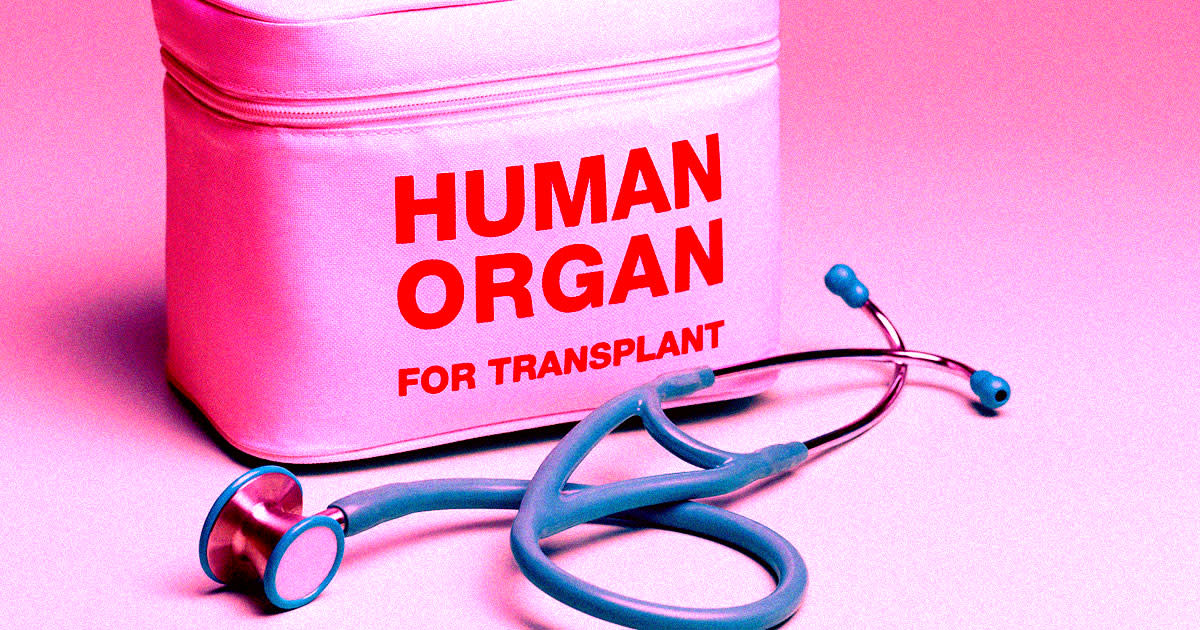Doctors Restoring Bloodflow in Legally Dead Bodies to Retrieve Donor Organs

Surgeons have found a fascinating way to retrieve donor organs from patients who have already been declared dead.
As NPR reports, the procedure is called normothermic regional perfusion (NRP), and involves pumping blood through the deceased donor's body.
Unsurprisingly, the procedure has proven highly controversial — despite greatly increasing the chances of obtaining functional donor organs, which is more important than ever given the ongoing donor organ crisis.
"It's not hyperbolic to say it's a big deal," Tennessee Donor Services organ recovery surgeon Marty Sellers told NPR in an interview. "We're saving a lot of lives that otherwise wouldn't have a chance. And the data indicate that if NRP was used nationally to the extent that we're able to do it here in Tennessee, we could essentially eliminate liver waiting list deaths."
When a patient's heartbeat and blood circulation stop, something that can be a choice in the case of a family choosing to withdraw life support of a loved one, doctors have the option of hooking up the patient's body to an external pump that restarts blood flow throughout the body.
The practice stops organs from being damaged by keeping up the circulation of oxygen-rich blood.
However, plenty of ethical questions arise. For one, bioethicists have debated whether some blood may be able to restore limited brain activity — despite doctors clamping off blood flow to the brain before carrying out the procedure.
"I think the bottom line is that NRP violates foundational ethical norms around the determination of death and should not be pursued," University of Colorado bioethicist Matthew DeCamp told NPR.
But there may be ways to stop any blood from reaching the brain. A 2022 paper, for instance, found that certain surgical techniques could ensure that brain function isn't restarted during NRP. Some blood pathways to the brain could also be drained ahead of time.
"Although theoretically sound, these surgical assurance techniques do not address all possible sources of brain blood flow and remain speculative in the absence of direct data confirming their effectiveness in preventing resumption of brain circulation and activity during NRP," the paper reads.
An ethical principle called the "dead-donor rule" restricts organ transplant procedures from being performed before the donor has been declared dead. That's because surgeons want to make absolutely certain these interventions are not involved in any way with the death itself. While it's technically not a law, it's a widely accepted ethical norm.
Proponents of NRP, however, say it's unquestionably a good thing.
"It's irrefutable that we are not causing any increased deaths with NRP, and we're saving more lives with NRP," Sellers told NPR. "And if you can argue with that, I don't have much to say to you."
"NRP respects an individual's decision to have their donated organs recovered in as good a condition as possible after a patient's death," a recent letter to the editor at the Journal of Cardiothoracic and Vascular Anesthesia reads. "It also respects the decision reached with the individual or their family not to be resuscitated after death."
According to Sellers, NRP can even honor somebody's life by extending their legacy to "save the lives of others."
It's a powerful option that could give thousands a new lease on life. More than 100,000 people in the US are waiting for a donor organ and many of them have to wait years, an unfortunate delay that could result in death.
More on donor organs: Organ Transplants Can Change Personality and Even Sexual Orientation, Scientists Find


